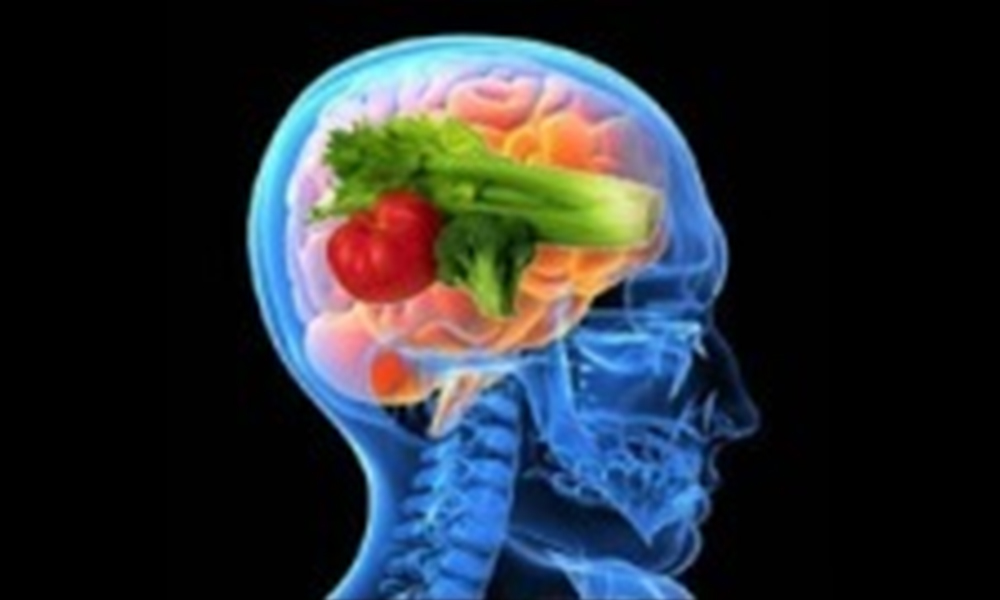
As most of us know, the brain is made up of fatty acids, water and minerals and hence we could possibly conclude that the foods we eat affect what we think and how we think. In recent years, enough scientific study has been done that suggests that food can help to treat and prevent depression, schizophrenia, Alzheimer and ADHD disease. Of course, there are several other factors that can affect the mental health of a person, such as age, genetics and environmental factors but one cannot ignore the importance of nutrition on mental health.
 Let’s for a moment look at the food we eat today. It is very different than what are ancestors considered food and the nutritional value has decreased significantly.
Let’s for a moment look at the food we eat today. It is very different than what are ancestors considered food and the nutritional value has decreased significantly.
For instance in the US, the chicken or for that matter, any animal protein we eat today is fed mostly corn- due to excess corn production in the US- which is not their natural diet. Hence the diet fed to these animals is 22% fat vs. 2% fat fed in the past and this has led to the reduction in Omega-3 Fatty acids and an increase Omega-6 Fatty acids. This is just one example.
Another one would be the amount of additives and preservatives in normal diet these days. It has been estimated that an average person in UK consumes about 4kg of additives in a year!
Since 60% of the brain is made of fatty acids, the type of fats we eat directly affects the brain health and its structure. Of this 20% is made of essential fatty acids -Omega 3 and Omega 6. These essential fatty acids help smooth communication within the brain. They are called essential fatty acids because the body does not have the potential of producing them on its own. The unequal intake of these fatty acids can lead to a number of health problems such as depression and memory problems.
Moreover most people eat too much of Omega 6 and not enough of Omega 3. Also, the presence of trans fats in our food today is replacing these essential fatty acids and hence leading to serious effect on brain function.
 Just like the rest of the body the brain needs different kinds of complex carbohydrates, essential fatty acids, amino acids, vitamins, minerals and water. Some of the simple things you can hence cultivate to ensure better mental wellbeing are :
Just like the rest of the body the brain needs different kinds of complex carbohydrates, essential fatty acids, amino acids, vitamins, minerals and water. Some of the simple things you can hence cultivate to ensure better mental wellbeing are :
– Eat freshly made foods made by you in your home and hence eliminating preservatives and additives.
-Choose unprocessed whole grain, unrefined carbohydrates, fresh fruits and vegetables. Studies have compared “traditional” diets, like the Mediterranean diet and the traditional Japanese diet, to the typical “Western” diet and have shown that the risk of depression is 25% to 35% lower in those as they include a lot of unprocessed grains, complex carbohydrates, fruit and vegetables. In addition, many of these unprocessed foods are fermented, and therefore act as natural probiotics. The notion that good bacteria not only influence what your gut digests and absorbs, but that they also affect the degree of inflammation throughout your body, as well as your mood and energy level, is gaining traction among researchers.
– Avoid processed foods especially the ones which have corn syrup.
– Consumed organic produce including your meats. Know where your food is coming from.
– Ensure that you have the right proportion of Omega 6 and Omega 3, laying emphasis on the former
– Avoid excess consumption of alcohol. Alcohol affects the function of neurotransmitters in the brain hence providing you with a feeling of a ‘high’ which is only temporary.
Now that you have this information, I hope you are able to implement some of these to improve your brain’s nutritional status. At Weljii, we can help you integrate this information along with some other important factors to further improve your brain mood and functioning. The Weljii Integrated approach to Wellness will help to understand the effects of lifestyle, relationships, environment, and stress along with nutrition on your brain health and functioning. We can help you understand the challenges you are currently facing and how you can overcome them, so that you enjoy an Optimum Quality of Life.


